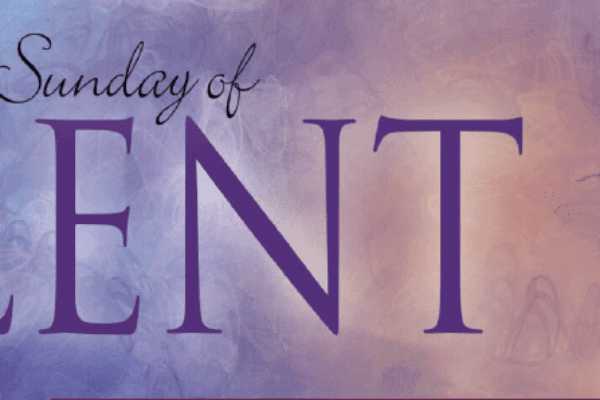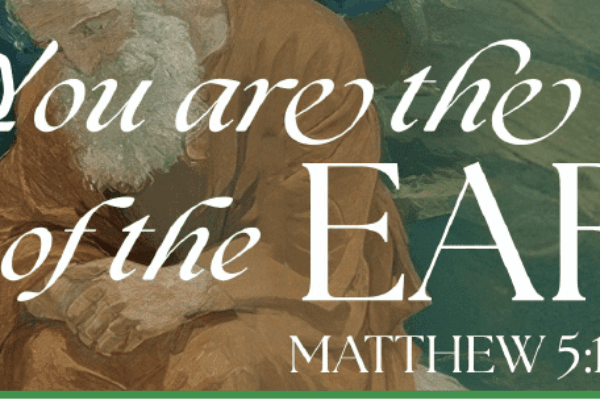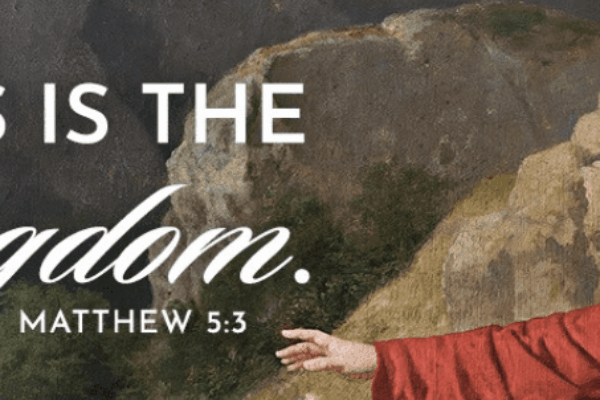Second Sunday in Lent
To The Lenten Pilgrims of Epiphany
Transfigured in Glory: Strengthened for the Journey of the Cross to Calvary
(Second Sunday of Lent, Mathew 17: 1-9, 01, March 2026)
The Gospel of this second Sunday of Lent presents to us the account of Jesus’ Transfiguration (Matthew 17:1-9). Jesus took aside three of the Apostles, Peter, James and John, and led them up a high mountain, where this singular phenomenon happened: Jesus’ face shone like the sun, and His garments became white as light (Mathew 17:2). The Lord thus made that divine glory shine in His person, which could be received with faith in His preaching and in His miraculous gestures. The Transfiguration on the mountain was accompanied by the apparition of Moses and Elijah, talking with Him (Mathew 17:3). (Pope Francis, Angelus, 2017)
The Mountain of Revelation: A Glimpse Beyond the Veil-The Gospel of this Second Sunday of Lent leads us up a high mountain, where Jesus takes Peter, James, and John aside and reveals to them a mystery hidden beneath the ordinary appearance of His humanity. His face shines like the sun, and His garments become white as light. For a moment, the veil is lifted, and the disciples behold the glory that has always dwelt within Him.
The Transfiguration is not a change in Jesus, but a change in what the disciples are allowed to see. What was always true becomes visible. Glory breaks through the ordinary.
Here we learn something essential about the spiritual life: faith is not the creation of meaning but the recognition of a glory already present.
The Lantern for the Night Journey-Many years ago, a guide was leading a small group of travelers across a rugged mountain path. They began their journey in the late afternoon, but soon the sun began to set, and darkness slowly covered the trail. The path became difficult to see, and fear began to creep into the hearts of the travelers. Sensing their anxiety, the guide stopped and lit a lantern. He held it high so that everyone could see the path ahead. The light did not illuminate the entire mountain; it only revealed a few steps at a time. Yet it was enough. With that small circle of light, they were able to keep walking safely through the night. At one point, one traveler asked: Why didn’t you light the lantern earlier, when the sun was still shining?
The guide smiled and said: Because you only understand the value of light when you are walking in the dark. And this light is not meant to replace the journey — it is meant to help you continue it.
The Transfiguration is like that lantern. Jesus allows the disciples to see His glory not to remove the coming darkness of the Cross, but to give them light to walk through it. In our lives, too, God gives us moments of clarity, peace, and consolation — not so we can remain on the mountain, but so we can remember the light when the road becomes difficult. Faith is often nothing more than walking forward by the light we once received.
Glory Before the Cross: Why the Vision is Given-It is not accidental that this event occurs on the road to Jerusalem. Jesus is preparing His disciples for scandal — the scandal of the Cross. Before they see His face disfigured in suffering, they are allowed to see it transfigured in glory.
The Fathers of the Church often said that the Transfiguration is given so that the disciples would not lose faith when they see Him crucified. The light of Tabor is meant to sustain them in the darkness of Calvary. Lent, too, is this journey: we are given glimpses of grace so that we may endure the necessary purifications of love.
Moses and Elijah: The Fulfillment of Promise-Moses and Elijah appear, representing the Law and the Prophets, speaking with Jesus. All of salvation history converges on this moment. Everything that God has spoken finds its fulfillment in Christ. The presence of Moses reminds us that God is faithful to His covenant. The presence of Elijah reminds us that God continues to speak through history. Together they testify that Jesus is not a break from God’s story, but its fulfillment. In Christ, promise becomes presence.
The Temptation to Stay: Peter’s Desire for Permanence-Peter, overwhelmed by the beauty of the moment, says: Lord, it is good for us to be here. If you wish, I will make three tents. Like all of us, Peter wants to remain in consolation. He wants to capture the moment, to freeze the experience of glory. But the Christian life cannot remain on the mountain. The vision is given not to escape the world but to transform how we walk within it. Grace is not given to shelter us from reality but to strengthen us for mission.
The Voice of the Father: The Center of Discipleship-Then the cloud overshadows them, and the Father speaks: This is my beloved Son, with whom I am well pleased; listen to Him. This is the heart of the passage. The command is not to admire, analyze, or even understand fully — but to listen. Lent is fundamentally a season of listening. In a noisy world, discipleship begins when we allow the voice of the Father to reorient our hearts toward Christ.
From Vision to Descent: The Spiritual Rhythm-After the vision, Jesus leads them down the mountain. This descent is essential. Every authentic encounter with God leads us back into ordinary life, but with transformed vision. Christian spirituality always follows this rhythm: revelation and return, contemplation and mission, glory and cross. We do not live permanently on Tabor; we walk toward Jerusalem.
The Transfiguration and Our Lenten Journey-The Transfiguration speaks directly to our Lenten journey. Lent is not merely about sacrifice or discipline; it is about learning to see reality in the light of Christ’s glory. We fast because we believe that there is a deeper hunger. We pray because we believe there is a voice to hear. We give because we believe love is stronger than possession. Lent is the school where our vision is purified.
The Mystery of Glory Hidden in Suffering-The same face that shines like the sun will soon be bruised and crowned with thorns. The same garments radiant with light will be stripped away. Yet the glory revealed on Tabor is not contradicted by the Cross — it is fulfilled in it. Christian glory is not the absence of suffering but the presence of love within it. The Cross is the place where divine love shines most brightly.
A Word for Our Discipleship Today-We all have moments of light — moments when God feels close, when faith seems clear, when hope feels strong. These moments are gifts meant to sustain us when the path becomes difficult. The question is not whether we will experience darkness, but whether we will remember the light. Faith matures when we learn to walk by remembered glory.
Cumulative Summary-The Transfiguration reveals the hidden glory of Christ, allowing the disciples to glimpse who He truly is, and this vision is given on the way to Jerusalem to strengthen them for the coming scandal of the Cross. The light of Tabor prepares the heart to endure the darkness of Calvary, while the presence of Moses and Elijah shows that Jesus is the fulfillment of the Law and the Prophets. Peter’s desire to remain on the mountain reflects our own longing to hold onto moments of consolation, yet true discipleship requires descending the mountain to continue the journey of faith. The Father’s command: Listen to Him, reminds us that the heart of discipleship is attentive listening. The spiritual life unfolds in a rhythm of contemplation and mission, vision and return, and Lent invites us to purify our vision so that we may see reality in the light of Christ. The glory revealed on the mountain is not contradicted but fulfilled in the mystery of the Cross, and the moments of grace we receive are given to sustain us when faith is tested by suffering and uncertainty. Strengthened by the light of Christ, we continue our journey toward Easter with renewed hope.
Concluding Words: Strengthened to Walk Toward Easter-As the disciples descend the mountain, they carry within them the memory of what they have seen. That memory will sustain them through confusion, fear, and sorrow.
Today, the Church invites us to stand with them on the mountain so that we, too, may be strengthened for the journey. The light of Christ is given not to remove the Cross, but to reveal its meaning.
Lent leads us from Tabor to Calvary — and beyond Calvary to the dawn of Easter.
Closing Prayer of the Epiphany-Lord Jesus, You revealed Your glory on the mountain to strengthen Your disciples for the scandal of the Cross. Grant us the grace to listen to Your voice, to trust Your presence in moments of darkness, and to walk faithfully toward Easter with hearts transfigured by Your light. Amen.
Fraternally,
Fr. John Peter Lazaar SAC, Pastor
First Sunday of Lent
To The Lenten Pilgrims of the Epiphany Lent is the Desert Where Hunger is Purified: The Heart is Reunited with God (First Sunday of Lent, Mathew 4:1-11; 22 February 2026) …
Ash Wednesday: The First Day of the Lenten Season
(Blessing and Giving of Ashes, Mathew 6:1-18, 18 February 2026) We are now embarking on our Lenten journey, which opens with the words of the prophet Joel. They point out…
6th Sunday in Ordinary Time
To The Epiphany Community The Law is Fulfilled on the Cross: Where Obedience Becomes Self-giving Love and Righteousness is Written in Wounded Mercy(Sixth Sunday in Ordinary Time, Mathew 5:17-37, 15…
5th Sunday in Ordinary Time
To The Disciples of Jesus in Epiphany Formed by the Beatitudes, Disciples are Sent: To be Salt and Light for the Life of the World (Fifth Sunday in Ordinary Time,…
4th Sunday in Ordinary Time
To Heaven Belongs to Those Who Live not as Owners: But as Grateful Receivers (Fourth Sunday in Ordinary Time, Mathew 5:1-12a, 01 February 2026) In today’s liturgy, the Beatitudes according…
3rd Sunday in Ordinary Time
To The Disciples of Jesus of the Epiphany Discipleship Begins When the Familiar Nets are Surrendered to the Unfamiliar Freedom of Christ The Gospel from today’s liturgy (Mathew 4:12-23) narrates…
Baptism of Our Lord
The Feast of the Baptism of Our Lord (Last Sunday of the Christmas Season, Mathew 3:13-17, 11 January 2026) In the Jordan, Heaven Opens not to Condemn: But to Call…
The Epiphany of the Lord
To The Family of the Epiphany Parish The Epiphany of the Lord Magnus Deus in Parvulo Latet: The Great God Hides in the Small (Second Sunday after Christmas, Matthew 2:1-12, 04 January 2026) …
Solemnity of Mary, the Holy Mother of God: World Day of Peace
(Holy Day of Obligation, Luke 2: 16-21, Thursday 01 January 2026) Dear Brothers and Sisters of the Epiphany, Today in our calendar is the first day of the Gregorian Year,…















